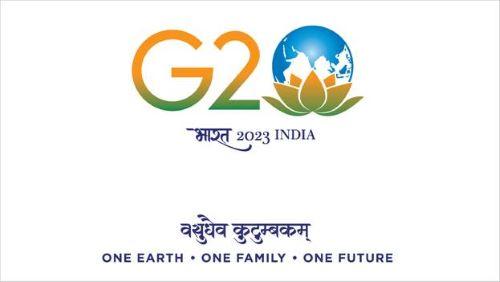
India’s credentials for leading the next significant change in the Digital Revolution come not only from its emergence as a big economy but also from a successful track record in driving economic change and financial inclusion through digitalization
G20 presidency has provided India with just the right opportunity to showcase its success in driving economic growth through digitalization. But it is doing that responsibly, taking an inclusive approach that will benefit the world at large. The Negroponte would probably call it the geopolitical switch. Those who were followers in the technology world are now leading the new technology framework development in the new world order, and those who were too used to dictate are all ears.
We, of course, are talking of the digital public infrastructure (DPI) initiative that the G20 has taken up under India’s leadership, fully acknowledging India’s role in shaping it up.“Under the Indian Presidency’s initiative, we recognize that digital public infrastructure, hereinafter referred to as DPI, is described as a set of shared digital systems that should be secure and interoperable and can be built on open standards and specifications to deliver and provide equitable access to public and/or private services at societal scale and are governed by applicable legal frameworks and enabling rules to drive development, inclusion, innovation, trust, and competition and respect human rights and fundamental freedoms,” said the outcome document of the G20 Digital Economy Ministers meeting at Bengaluru, held in August this year, quite unequivocally.
The Bengaluru meeting also agreed on a G20 Framework for Systems of Digital Public Infrastructure. The work for this, however, didn’t happen in one meeting. In the first meeting of the Digital Economy Working Group of the G20, held in Lucknow in February this year, India took the unusual step of inviting a larger group of delegates beyond the G20 members. India invited delegates from countries such as Bangladesh, Egypt, Mauritius, Netherlands, Nigeria, Oman, Singapore, Spain, and UAE, as well as international organizations like ITU, UNDP, UNESCO, OECD, and the World Bank. The idea was not just to get more comprehensive and more divergent views but also to make it more inclusive and thus create a sense of shared ownership because it believes the siloed block approach will not work anymore. India’s belief comes from its long experience of being on the other side and a thorough understanding of the grievances and aspirations of the Global South.
India’s credentials for leading the next significant change in the Digital Revolution come not only from its emergence as a big economy but also from a successful track record in driving economic change and financial inclusion through digitalization at a scale and diversity few countries can match. UPI, which is now available in about a dozen countries, is the best example. It is arguably the world’s most prominent case study of financial inclusion through digitalization.
For a long, few economies dictated technology standard-making. In the good old telecom world, ITU still had some representation through intergovernmental collaboration. The modern IT world has completely been dictated by the big economies who led both in terms of their economic prowess and leadership. While China was the first country to challenge that supremacy, it willingly joined the same game that it played, building a market leadership for itself.
By taking an inclusive and collaborative path, India has shown a rare courage of conviction. In the next few months, digital public infrastructure will see significant investments. India has four distinct advantages of being the testbed for the world - its early success, its skilled manpower, its diverse market, and its strong regulations.
Image Source: PBI

 In
In
Add new comment